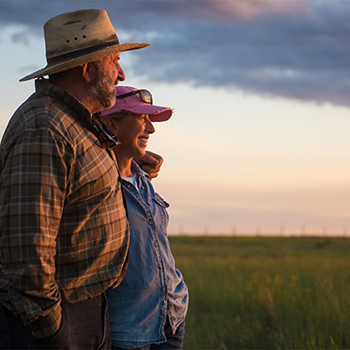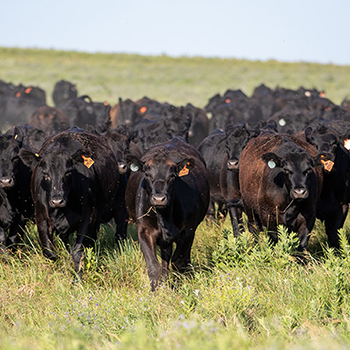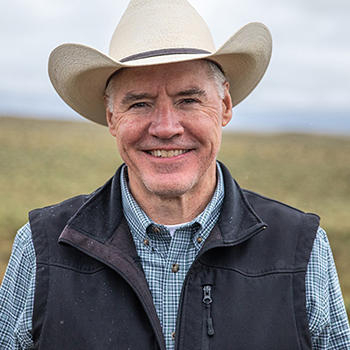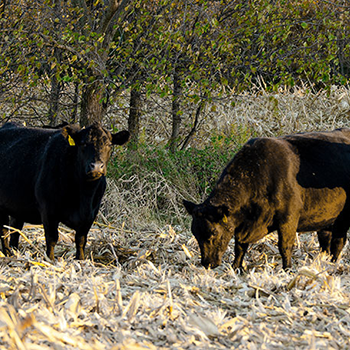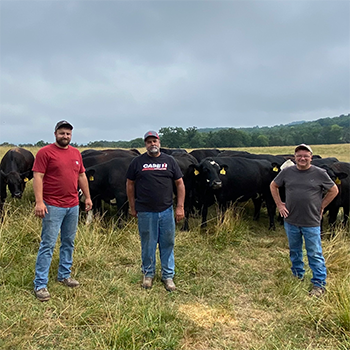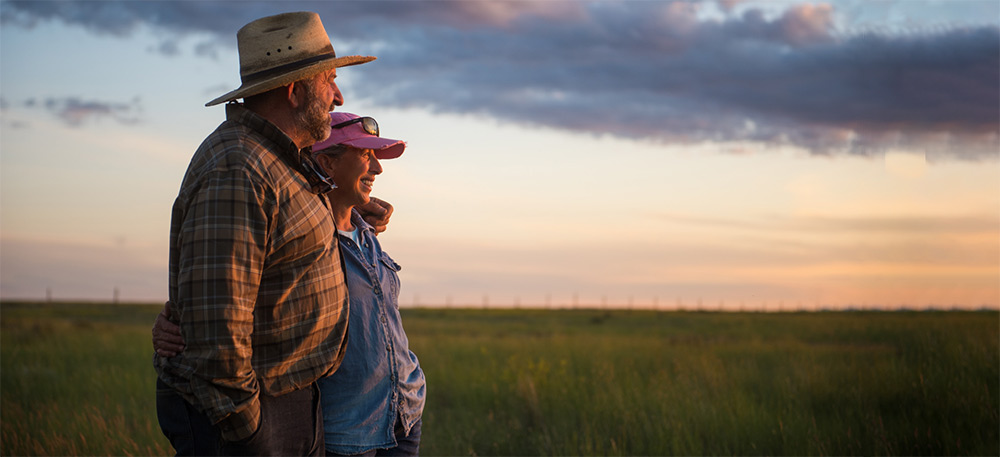
Encouraging the Next Generation
Passing on a ranch means passing on a land ethic.
Craig and Conni French understand the importance of passing on a land ethic to the next generation, and they want to make sure their ranch will stay productive into the future. The Frenches of C Lazy J Livestock near Malta, Mont., were the 2020 recipients of the Montana Leopold Conservation Award. They have been ranching together since 1991, starting on a ranch that was homesteaded by Craig’s great-grandfather in 1910.
“We met in college, and after we got married, we worked at a guest ranch near Yellowstone Park a couple years and started a family,” Conni says. “Then Craig’s parents were expanding their ranch and wondered if we’d like to come back to the ranch.”
The couple worked with Craig’s parents for 25 years before purchasing their own place on the family ranch’s northern border. They added the cattle into the management plan and managed the cattle in common.
About five years ago, Craig’s parents did estate planning, and other family members decided they wanted to come back and try their hand at ranching.
“We decided this was the opportunity to do our own thing and pursue our own ideas,” Conni says.
Now it’s just Craig and Conni working together on their own place, but their son Tyler would like to ranch with them. He is an Air Force pilot and was deployed to Afghanistan. While there, he realized his heart was in ranching, Conni says. “He asked us to gather some books on ranching and land stewardship and send them to him.”
Several neighbors recommended books. One was Allan Savory’s book on holistic resource management. After doing some reading, Tyler sent the books back to his parents.
“[He] insisted we read them, too. He pushed us, and that’s what we needed,” Conni says.
Earlier, Craig and Conni had attended a one-day Natural Resources Conservation Service (NRCS) grazing workshop.
“This was a light-bulb moment,” Conni says. “We realized we had not been doing the best we could do for our land, and [we] knew we could improve.”
They had always considered themselves good land stewards, but they realized the future of the ranch was tied to healthy soils and grass. This introduction to holistic management called into question some of their traditional thinking.
She and Craig started looking for more workshops, schools and seminars. Craig, Conni and Tyler attended the Ranching for Profit School. They got excited about changing direction and figuring out what they could do to start making a difference. Tyler was still in the military, but he came home to the ranch whenever he was on leave and helped when he could.
“At that time, we were still ranching with Craig’s parents and running the yearling herd on the main ranch,” Conni shares. “We started using electric fence and trying to intensify grazing management and had some nice success. This motivated us even further.”
More recovery time allowed perennial vegetation to flourish in a semiarid environment of short prairie grass, resulting in better forage and wildlife habitat.
The Frenches had joined Ranching for Profit’s Executive Link program offered to alumni. Conni says it was a phenomenal experience with wonderful people who supported and encouraged them.
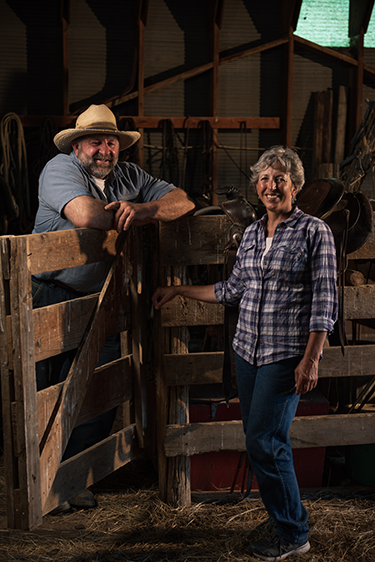
Attending grazing workshops, the Ranching for Profit School and reading holistic management books has changed the way the French family stewards their land. |
When the time came to make the decision to leave Craig’s parents’ ranch and start out on their own, they had the courage and confidence to do so.
“We also feel it was a God thing. We realized there were certain things we needed that had to happen for us to be able to make it on our own, and uncannily, it all fell into place,” she says.
“This also gave us confidence that we were on the right road and thinking there was a reason for this — that maybe we were meant to help other people,” she adds. “Maybe we could set an example for others to have the courage to try this road, and that maybe this is how we are supposed to take care of this land.”
Craig and Conni have three children. Tyler, their oldest, is still in the military, but will finish his commitment in the spring of 2023. At that point, he and his wife, Carolyn, plan to come back to the ranch with their two children and give ranching a try.
“We are working hard to build up our business enough to support this extra family,” Conni says.
Craig and Conni have engaged their three children in ranch planning. They also recognize that even if the kids don’t take over the ranch, they would like to pass on a ranch operation that is sustainable, both environmentally and economically.
Editor’s note: Heather Smith Thomas is a freelance writer and a cattlewoman from Salmon, Idaho.
